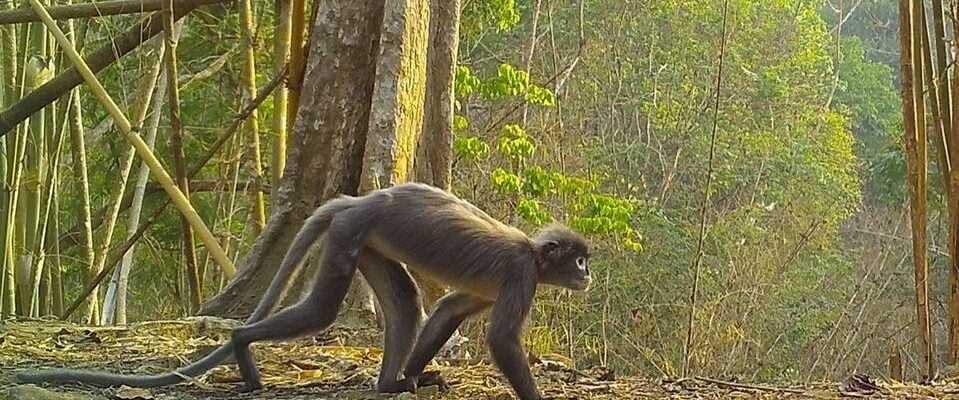Despite global warming and logging, nature still manages to surprise with its richness. According to a WWF report, 224 new species were discovered in 2020 in the Greater Mekong region alone.
This area of the globe includes Burma, Thailand, Laos, Cambodia and Vietnam. It is known as a high place of biodiversity, in particular because of the diversity of its landscapes: from the jungle to the mountain, passing through karstic formations (a karst is a limestone massif in which water has dug cavities , note).
The Greater Mekong harbors some of the most impressive and endangered species in the world, such as the tiger, the Asian elephant or even the giant Mekong catfish. To these are added the 224 discoveries of 2020, which include plants and vertebrate animals.
Like Popa’s Langur, a monkey that takes its name from the extinct volcano of Mount Popa, located in central Burma. This primate is threatened by hunting, logging and habitat loss. Only 200 to 250 individuals remain in total, according to estimates.
A brightly colored frog
In Vietnam, researchers have also discovered the Mount Ky Quan San horned frog. A brightly colored animal, which evolves at more than 2,000 meters above sea level. A new rock gecko has been spotted in Thailand, an as-yet-unknown pale yellow cavefish has been identified in Myanmar, and a species of mulberry has caught the attention of scientists in Vietnam.
So many reasons to marvel, without however being naive. In its report, the WWF recalls that these wild species evolve in fragmented and degraded natural habitats, thus constituting “a stark reminder of what we risk losing if human activities continue to destroy the natural environment in the region”.
Along with these discoveries, the loss of biodiversity continues at a frightening rate. The 2020 global Living Planet Index shows an average decline of 68% in the populations of mammals, birds, amphibians, reptiles and fish between 1970 and 2016.

![Proche du Grand Pic (photo), le pic à bec d'ivoire aurait été vu pour la dernière fois en 2005. [Stacy Revere / GETTY IMAGES NORTH AMERICA / Getty Images via AFP]<br />](https://static.cnews.fr/sites/default/files/styles/image_375_210/public/063_525670686-taille1200_61547ef3b1897.jpg?itok=jbY-NB_0)